Song Dynasty Hanfu Restoration
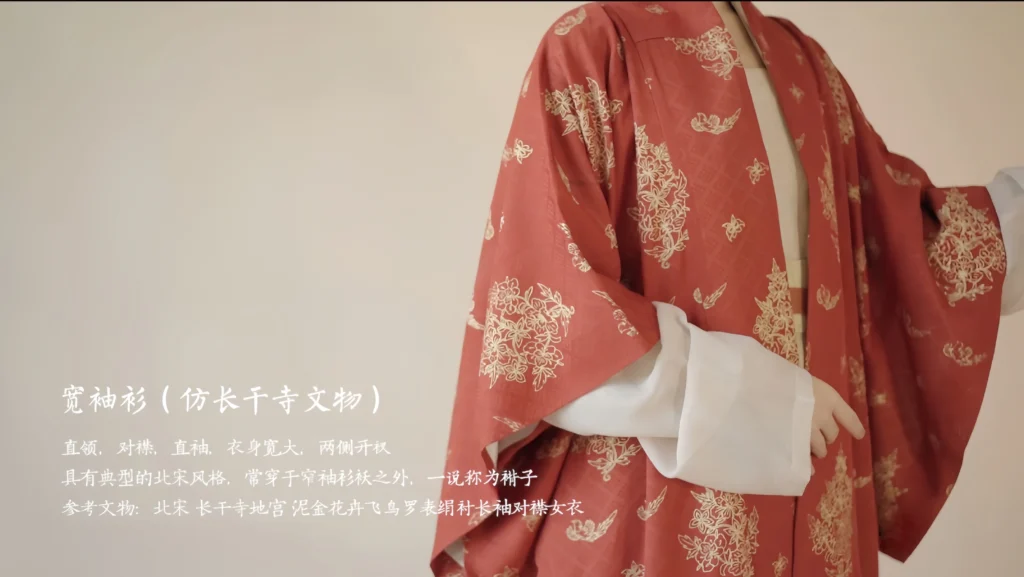
Song Dynasty Hanfu holds a vital place in the history of traditional Chinese clothing and is one of the three major styles popular in modern Hanfu culture. Its fresh, elegant, and simple charm makes it a favorite among enthusiasts.
The Song Dynasty’s minimalist Hanfu designs are a cherished part of traditional Chinese clothing, showcasing elegance and cultural depth. Restored garments bring this legacy to life. Curious about their historical roots? Explore more!
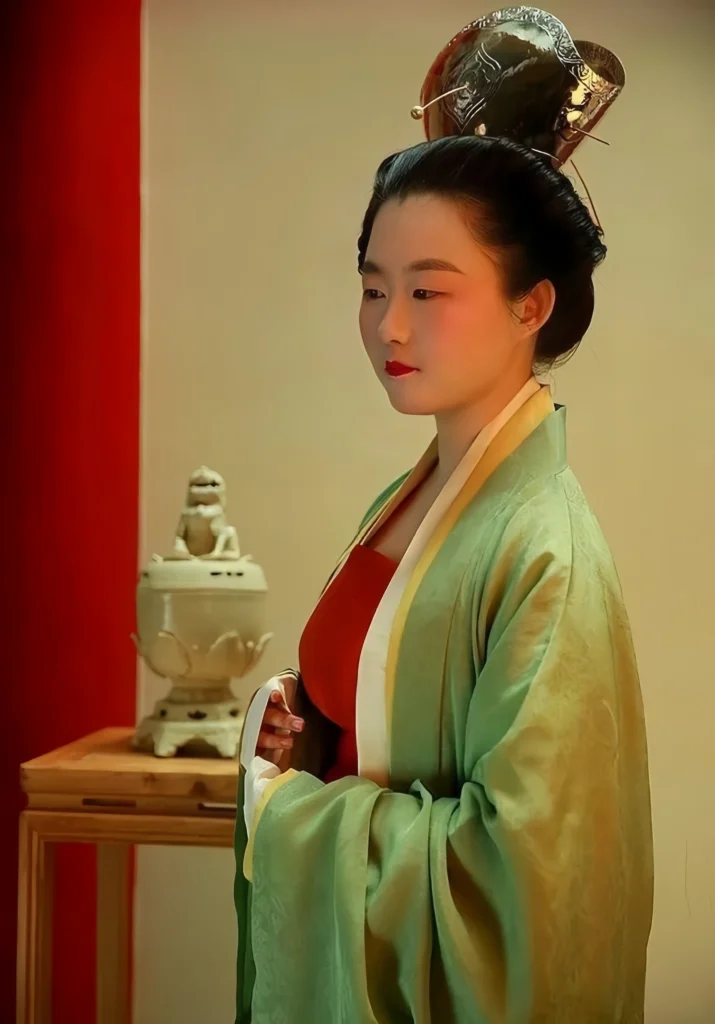
Influenced by Cheng-Zhu Neo-Confucianism, Song Dynasty aesthetics leaned toward simplicity and modesty. Men’s beizi (long jackets) were typically worn as an inner layer under official attire, rarely as outerwear. Women’s beizi, however, were worn as outer garments and became a classic everyday style.
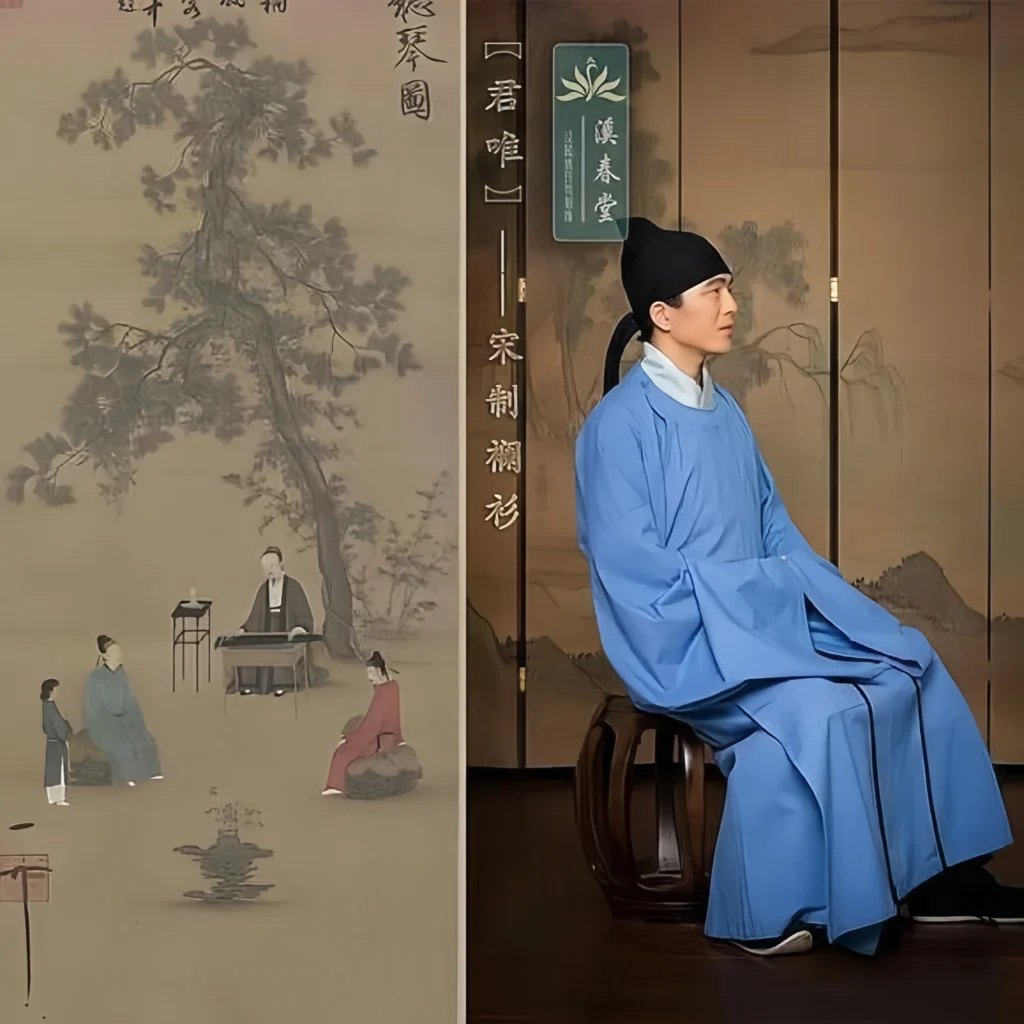
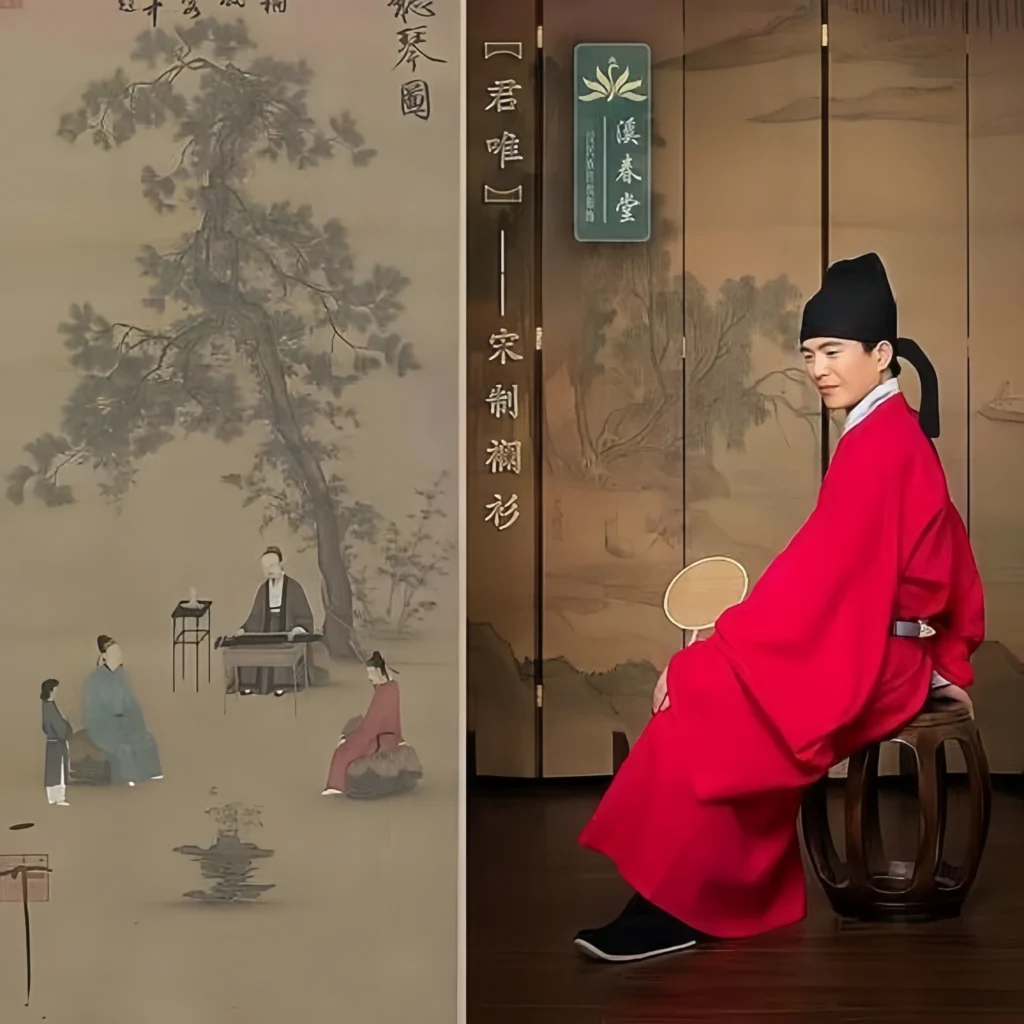
Song Dynasty Women’s Hanfu Restoration Guide
One-Piece Strapless Top
The strapless top is the innermost layer of Song women’s clothing.
Usually a one-piece design secured with straps.
Reference Artifact: Southern Song, Huashan Tomb, Gaochun – Plain strapless top.
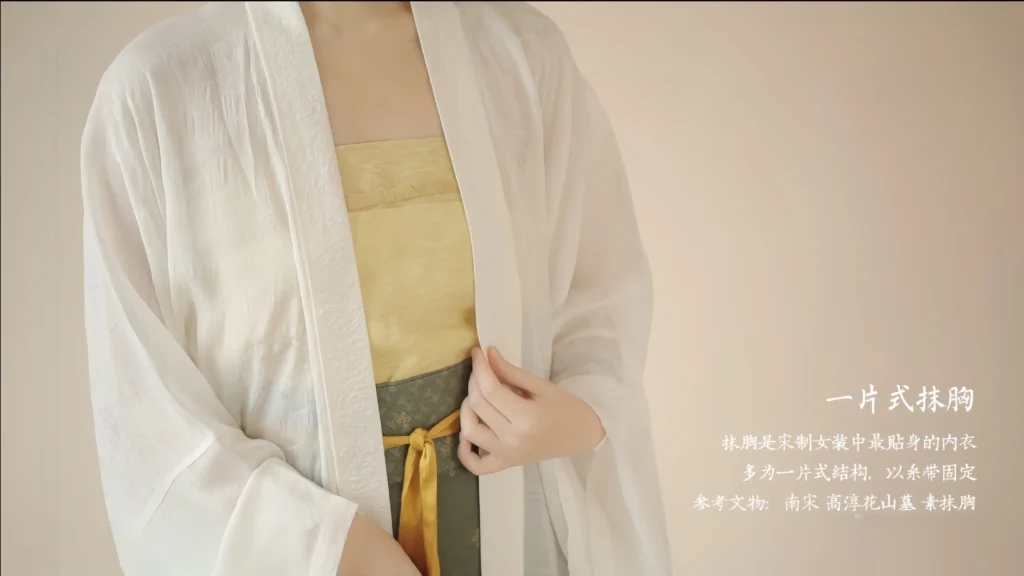
One-Piece Strapless Top (with Triangular Pleats)
A variation of the one-piece strapless top, featuring triangular pleats at the front center for a fitted silhouette.
Reference Artifact: Southern Song, Huashan Tomb, Gaochun – Diamond-patterned floral printed silk strapless top.
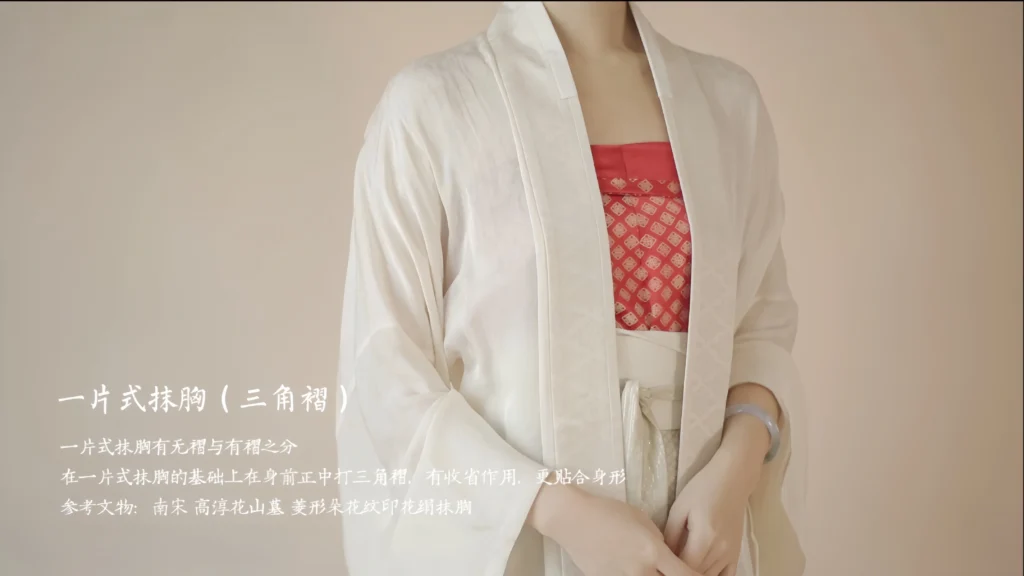
Strapless Top (Special Design)
A unique style covering only the front, padded with cotton.
Features triangular pleats and is secured with straps.
Reference Artifact: Southern Song, Huang Sheng Tomb, Fuzhou – Brown silk strapless top.
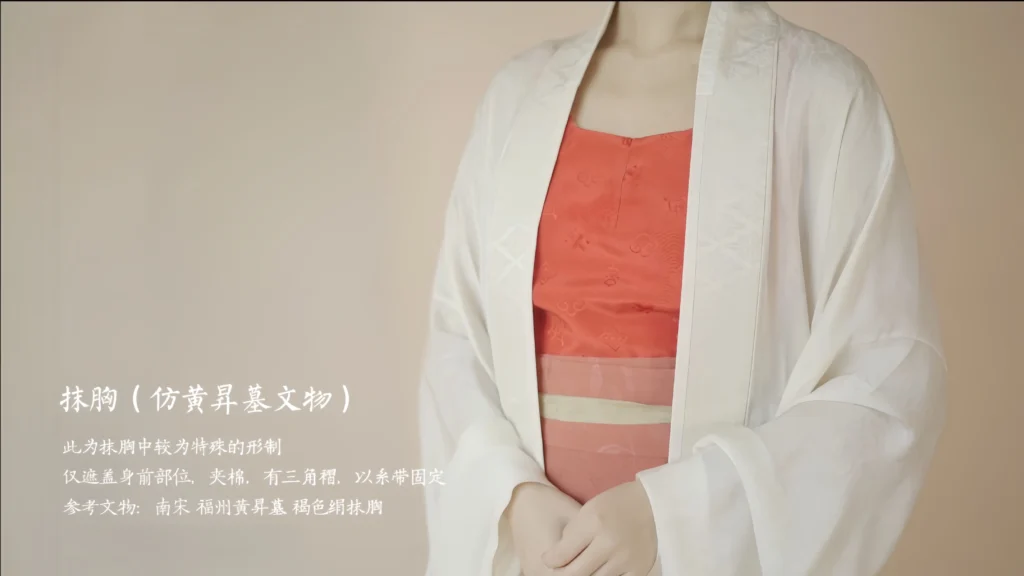
Crotched Trousers
The innermost lower garment in Song women’s attire, worn under other trousers or skirts.
Secured with straps, an essential part of layered dressing.
Reference Artifact: Southern Song, Huashan Tomb, Gaochun – Silk trousers with twining lotus and paired flower patterns.
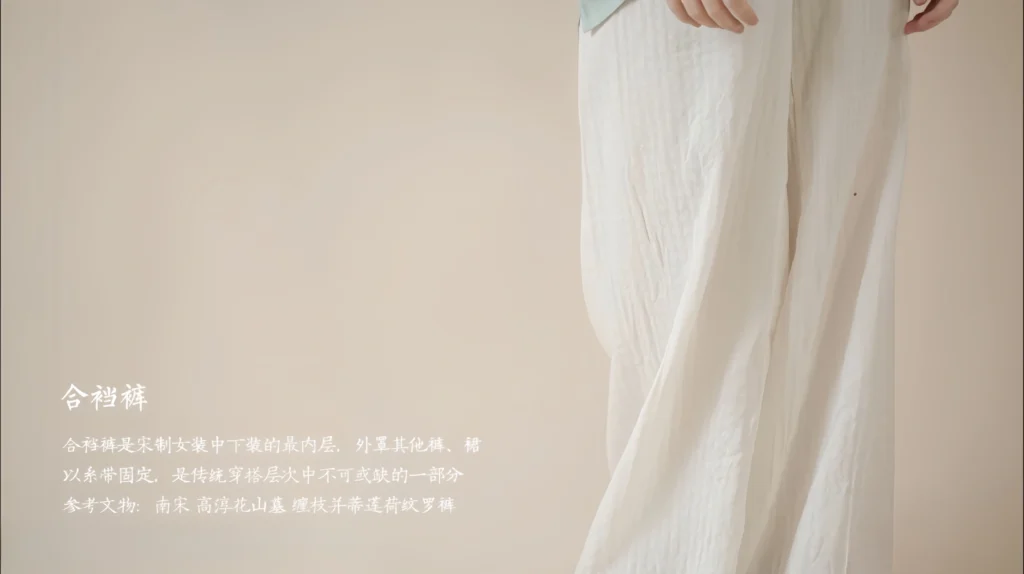
Side-Slit Crotched Trousers
Crotched trousers with slits and pleats on both sides, worn over other trousers.
Casual attire, ideal for pairing with shirts or jackets.
Reference Artifact: Southern Song, Huang Sheng Tomb, Fuzhou – Yellow-brown floral silk trousers with side slits and center-stitched crotch.
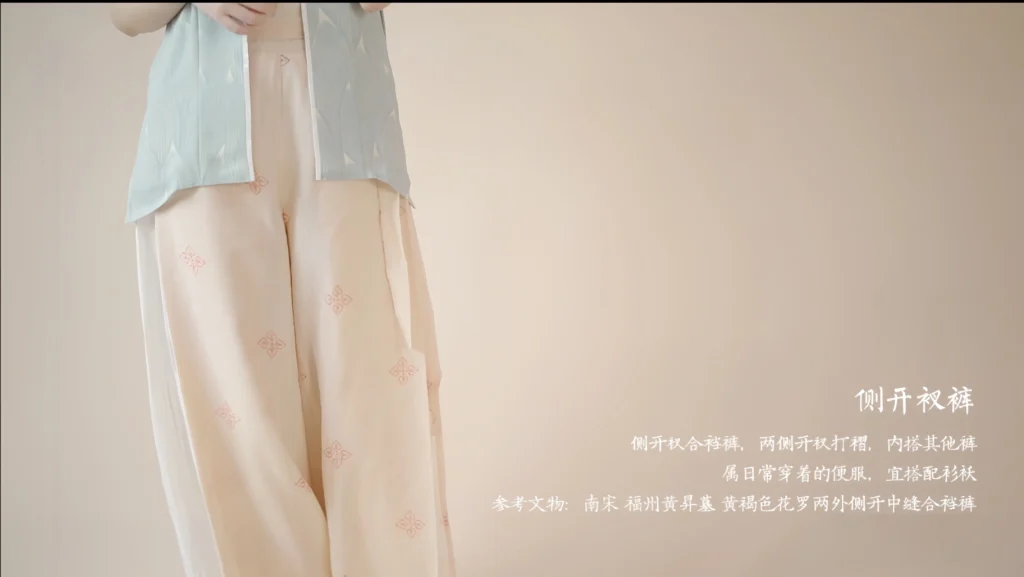
Vest
Straight collar, open-front, typically sleeveless, with a rectangular silhouette.
Can be worn alone, as an inner layer, or over shirts/jackets.
Reference Artifact: Southern Song, Huang Sheng Tomb, Fuzhou – Smoke-colored plum blossom silk vest with floral trim.
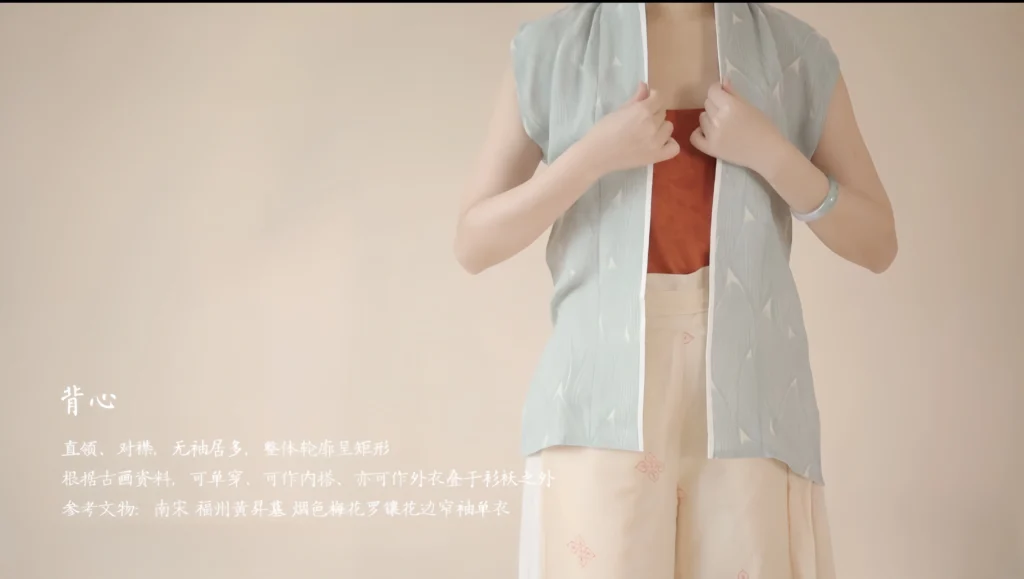
Open-Front Short Shirt (Straight Sleeves) & Open-Front Short Shirt (Narrow Sleeves)
Song women’s upper garments are often open-front, available as light shirts or thicker jackets.
Length, sleeve shape, and width vary with fashion trends.
Reference Artifacts:
- Southern Song, Huang Sheng Tomb, Fuzhou – Brown-black silk jacket with floral trim (front).
- Southern Song, Chayuan Mountain Tomb, Fuzhou – Smoke-colored open-front silk shirt (back).
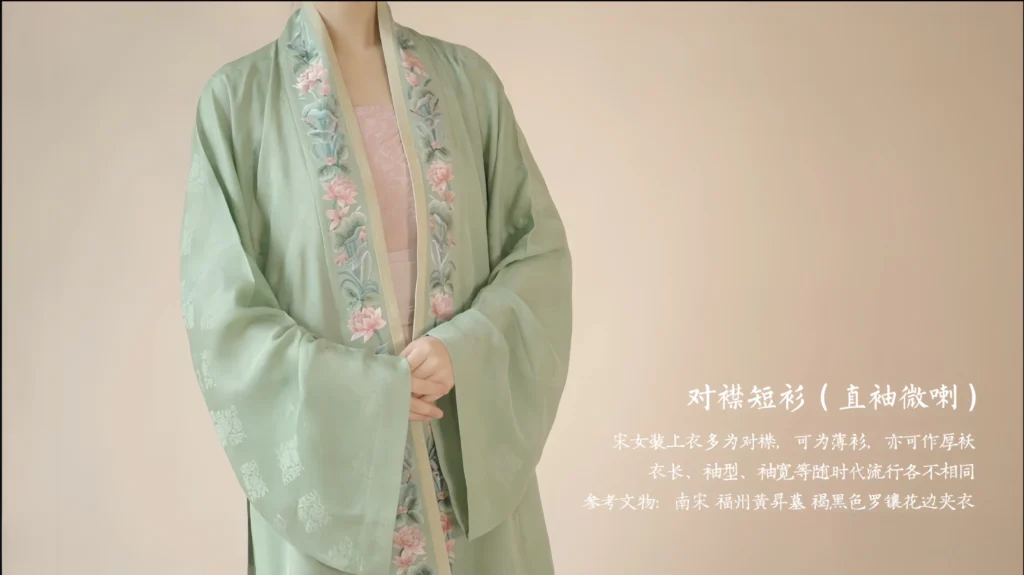
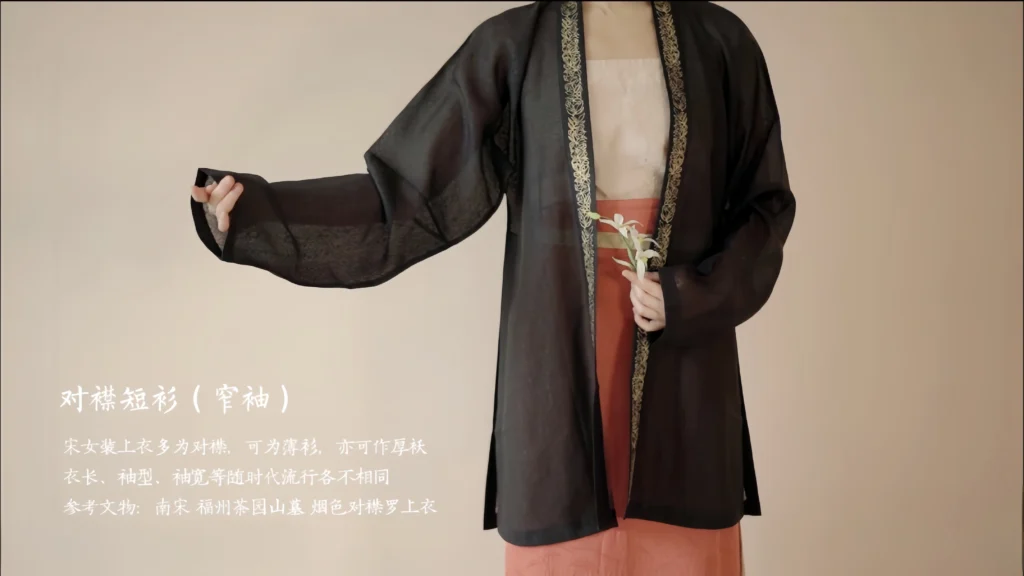
Two-Piece Skirt (Narrow Hem)
A one-piece skirt with simple, narrow pleats, valued for its elegant simplicity.
Reference Artifact: Southern Song, Huang Sheng Tomb, Fuzhou – Yellow-brown peony-trimmed skirt.
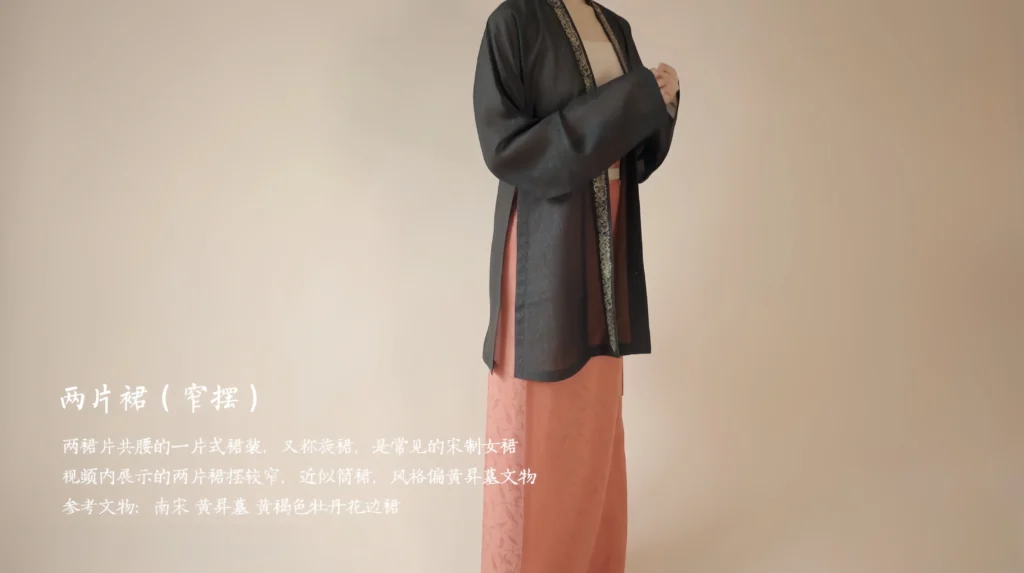
Open-Front Long Shirt (Straight Sleeves)
Open-front design, available as light shirts or thicker jackets, with varying lengths, sleeve shapes, and widths based on trends.
Reference Artifact: Southern Song, Huang Sheng Tomb, Fuzhou – Brown floral silk robe with narrow sleeves and floral trim.
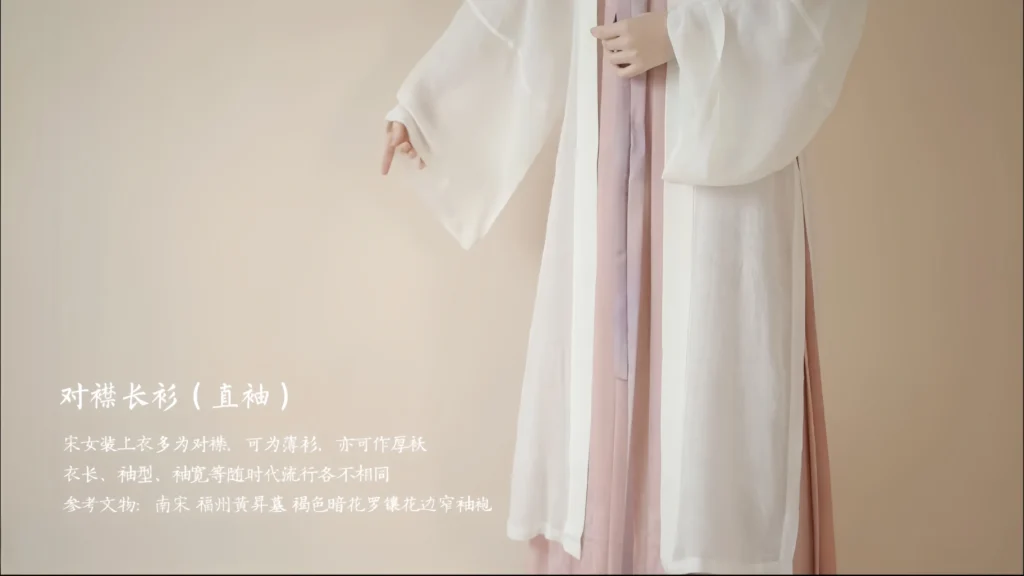
Hundred-Pleat Skirt
The most common Song women’s skirt, named for its numerous pleats, with flat panels at both ends.
Frequently unearthed in Song tombs across China, typically the outermost skirt layer.
Reference Artifact: Southern Song, Huashan Tomb, Gaochun – Hundred-pleat gauze skirt.
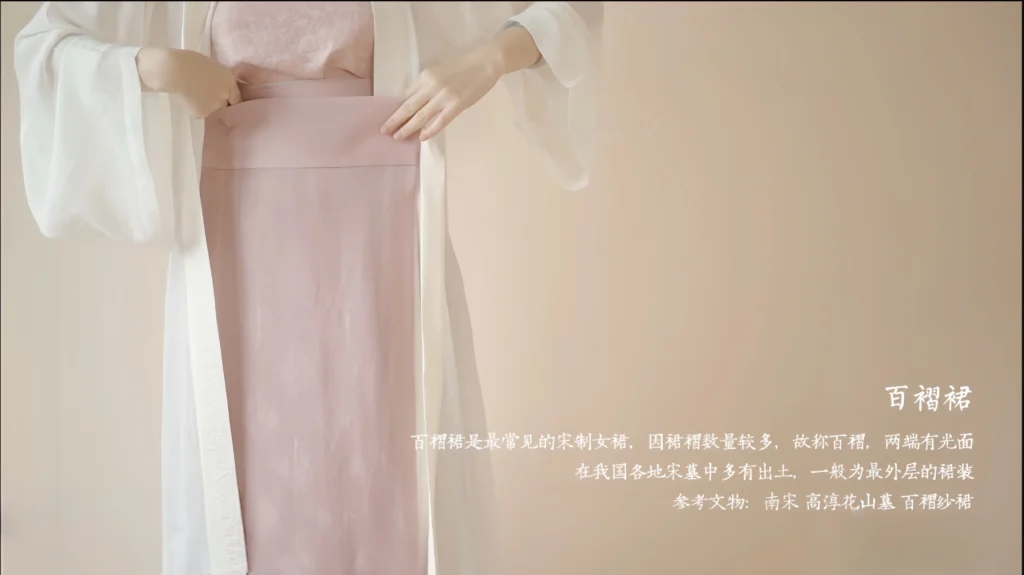
Pleated Skirt
Known as the three-pleat skirt due to three pairs of pleats, with the upper pleat ends stitched, creating a fishtail shape.
Reference Artifact: Southern Song, Zhou Clan Tomb, De’an – Ruyi coral-patterned pleated skirt.
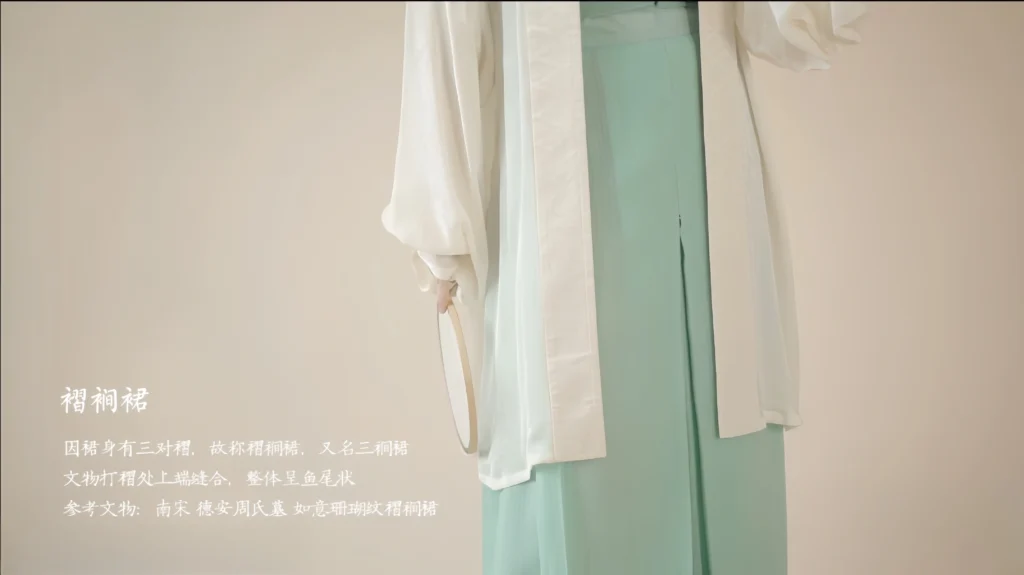
Wide-Sleeved Shirt (Inspired by Changgan Monastery Artifact)
Straight collar, open-front, wide sleeves, loose-fitting body, with slits on both sides.
A classic Northern Song style, often worn over narrow-sleeved shirts or jackets, sometimes called a beizi.
Reference Artifact: Northern Song, Changgan Monastery Underground Palace – Silk-lined long-sleeved open-front women’s shirt with gold-painted floral and bird patterns.

Beizi
A floor-length jacket with a straight collar, open-front, and side slits.
A standard ceremonial garment for Song women, decorative and typically paired with skirts.
Reference Artifact: Southern Song, Huang Sheng Tomb, Fuzhou – Yellow-brown silk robe with narrow sleeves and floral trim.
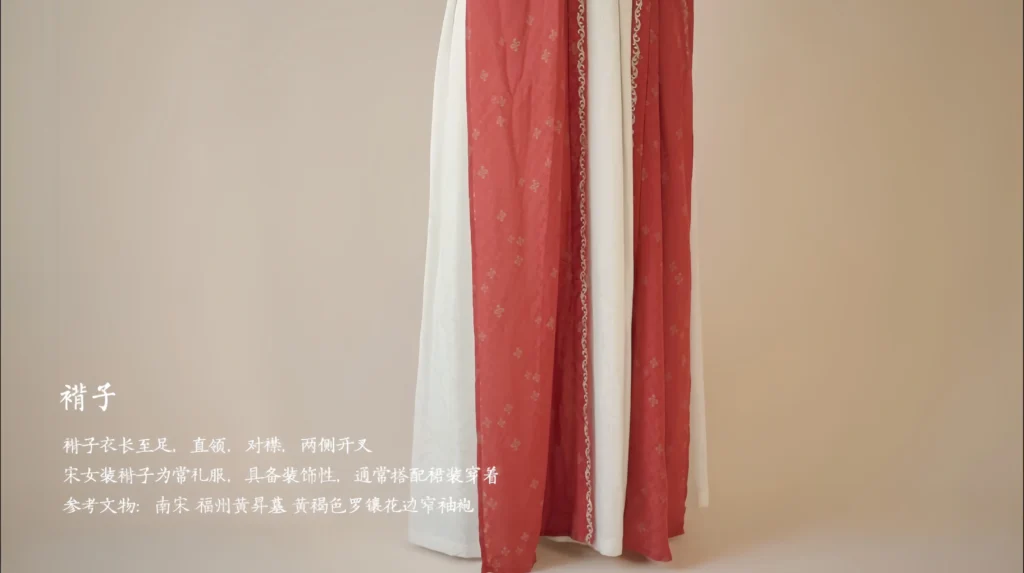
Conclusion: The Timeless Appeal of Song Dynasty Hanfu
Song Dynasty Hanfu continues to enchant Hanfu restoration enthusiasts with its intricate details and cultural depth. Its legacy in Hanfu culture endures, inspiring modern designs. Dive deeper into Song Dynasty fashion at Hanfu Society.
These restorations highlight Song Dynasty fashion, with intricate details that continue to inspire modern Hanfu enthusiasts.



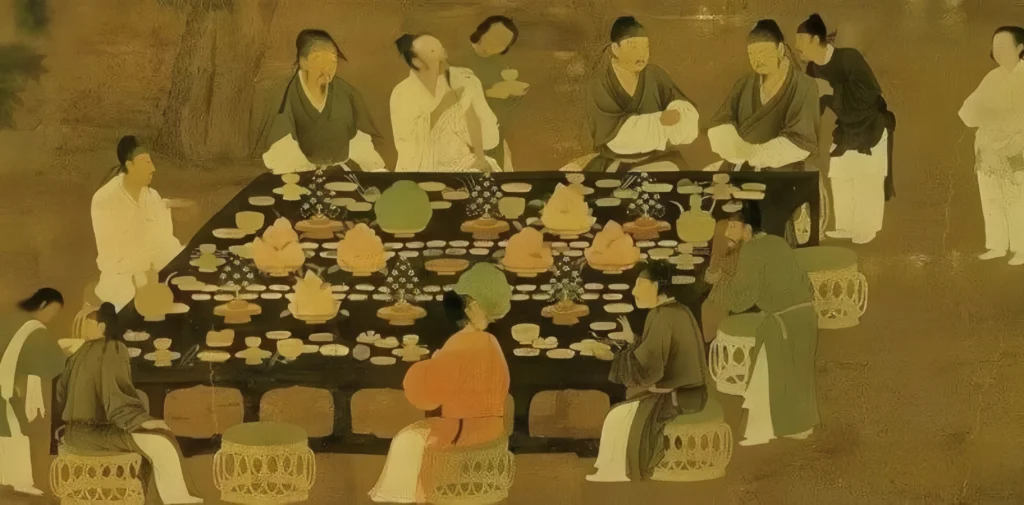
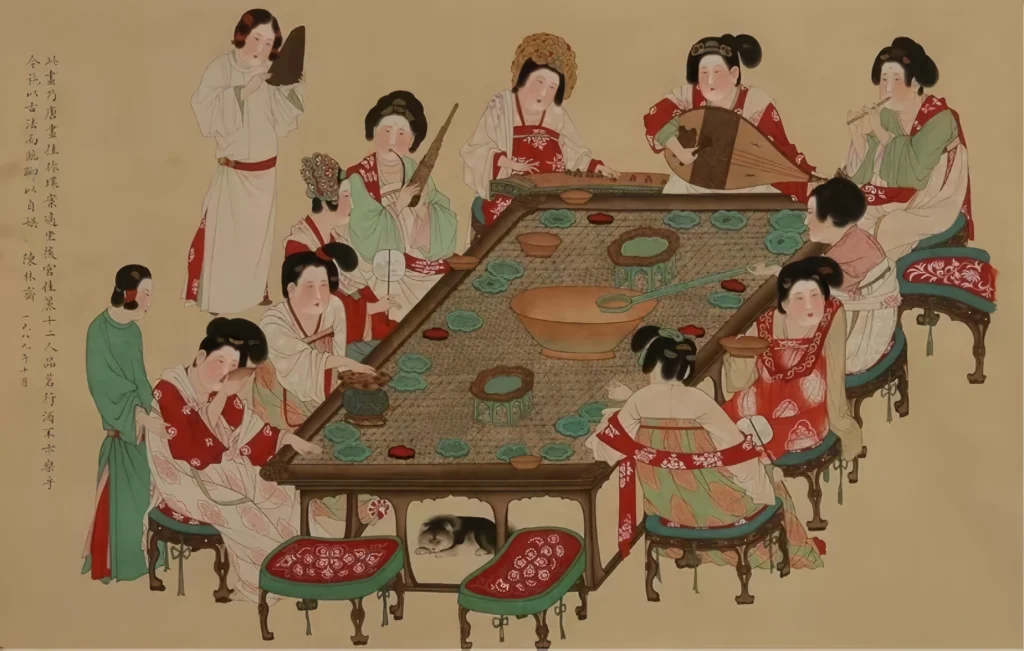
Responses